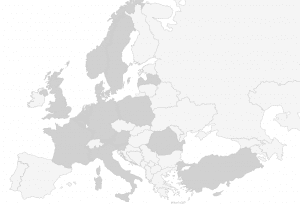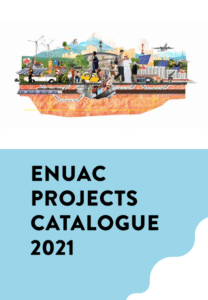Aim of the call
The ERA-NET Cofund Urban Accessibility and Connectivity (ENUAC) call for proposals aims at creating and testing new solutions and approaches for sustainable urban mobility. With this shared ambition, 16 countries are pooling resources to implement a series of calls for research and innovation projects as well as accompanying measures to create highest impact. The joint calls and actions will focus on measures to improve urban accessibility and connectivity for all groups of society while moving towards more sustainable urban mobility systems.
The call opened in September 2019 and the submission deadline was in September 2020. The projects started in March 2021 and are expected to end in 2024.
> Read more about the early stages of the call here
Call topics
The call is divided into five challenges that need to be responded in order to move towards realising sustainable urban accessibility and connectivity for all, taking advantage of current solutions and approaches. Each proposal must be attached to at least one challenge but may be related to several challenges if it is focussed on a crosscutting subject or an issue that is at the frontier of several
Challenge 1: Evolving solutions for an integrated approach on sustainable urban physical mobility and transport, land use and digital connectivity
Challenge 2: Develop and support the implementation of innovative mobility systems and services with a potential to contribute to sustainable urban mobility
Challenge 3: Transform and re-organise urban spaces to pave the ground for sustainable urban mobility and accessibility at local level, from the street scale to the district
Challenge 4: Develop effective policy options for achieving a shift towards sustainable urban accessibility and connectivity
Challenge 5: Change behaviours and perspectives towards sustainable urban accessibility and connectivity
Downloads
Funded projects
A total of 86 proposals were successfully submitted in the first evaluation phase and from these a total of 37 were invited for the full proposal stage. During fall 2020 these proposals have been assessed by an expert panel and the national funding agencies agreed on a list of 15 proposals selected for funding. The projects will start beginning of 2021 and continue until 2024:
ASAP – Awaken Sleeping Assets Project
CATAPULT – PoliCies for inclusive, demand-oriented and target group-specific automated mobility solutions for cities
COCOMO – COmpeting and COmplementary MObility solutions in urban contexts
DyMoN – Dynamic Mobility Nudge: Shaping sustainable urban mobility behaviour with real-time, user-generated and public open data
EASIER – Seamless sustainable everyday urban mobility
EX-TRA – EXperimenting with city streets to TRAnsform urban mobility
GeoSence – Geofencing strategies for implementation in urban traffic management and planning
ITEM – Inclusive Transition towards Electric Mobility
JUSTICE – Joining Urban morphology, Spatio-Temporal and socio-cognitive accessibility for an Inclusive City Environment
MyFairShare – Individual Mobility Budgets as a Foundation for Social and Ethical Carbon Reduction
SmartHubs – Smart Mobility Hubs as Game Changers in Transport
SORTEDMOBILITY – Self-Organized Rail Traffic for the Evolution of Decentralized MOBILITY
TAP for uncertain futures – Using Triple Access Planning to Enhance Urban Accessibility and Connectivity in the Face of Deep Uncertainty
TuneOurBlock – Transforming urban quarters to human scale environments
WalkUrban – Walkable Urban Neighbourhoods – Freeing up Potential for Sustainable and Active Travel by Improving Walking and its Connections with Public Transport
>> Learn more about the projects
>> Search for projects in other calls
Timeline
Call opening 17 December 2019
Pre-proposal deadline 17 March 2020
Invitations to submit full proposal May 2020
Full proposal deadline: 22 September 2020
Funding decisions announced December 2020
Start of projects December 2020-March 2021
Projects end 2024
Documents
> Call text
> List of national contact points
> Materials from the kick-off event on 10 may 2021
Events in this call
Call secretariat
If you have questions please contact the Call Secretariat:
Agence Nationale de la Recherche,
Aurélien Gaufrès and/or Pascal Bain
E-mail: enuac@anr.fr
Communications officer: amanda.ritzman@iqs.se
Funding Agencies and national contact points
List of national contact points
| Country | Partner |
| Austria | FFG BMVIT |
| Belgium | F.R.S-FNRS
FWO HermesFond IrsiB |
| Cyprus | RPF |
| Denmark | IFD |
| France | ANR |
| Germany | DLR
BMBF |
| Italy | MIUR |
| Latvia | VIAA |
| The Netherlands | NWO |
| Norway | RCN |
| Poland | NCN |
| Romania | UEFISCDI |
| Slovenia | ARRS |
| Sweden | Formas
SWEA Vinnova |
| Turkey | Tübitak |
| United Kingdom | ESRC |




